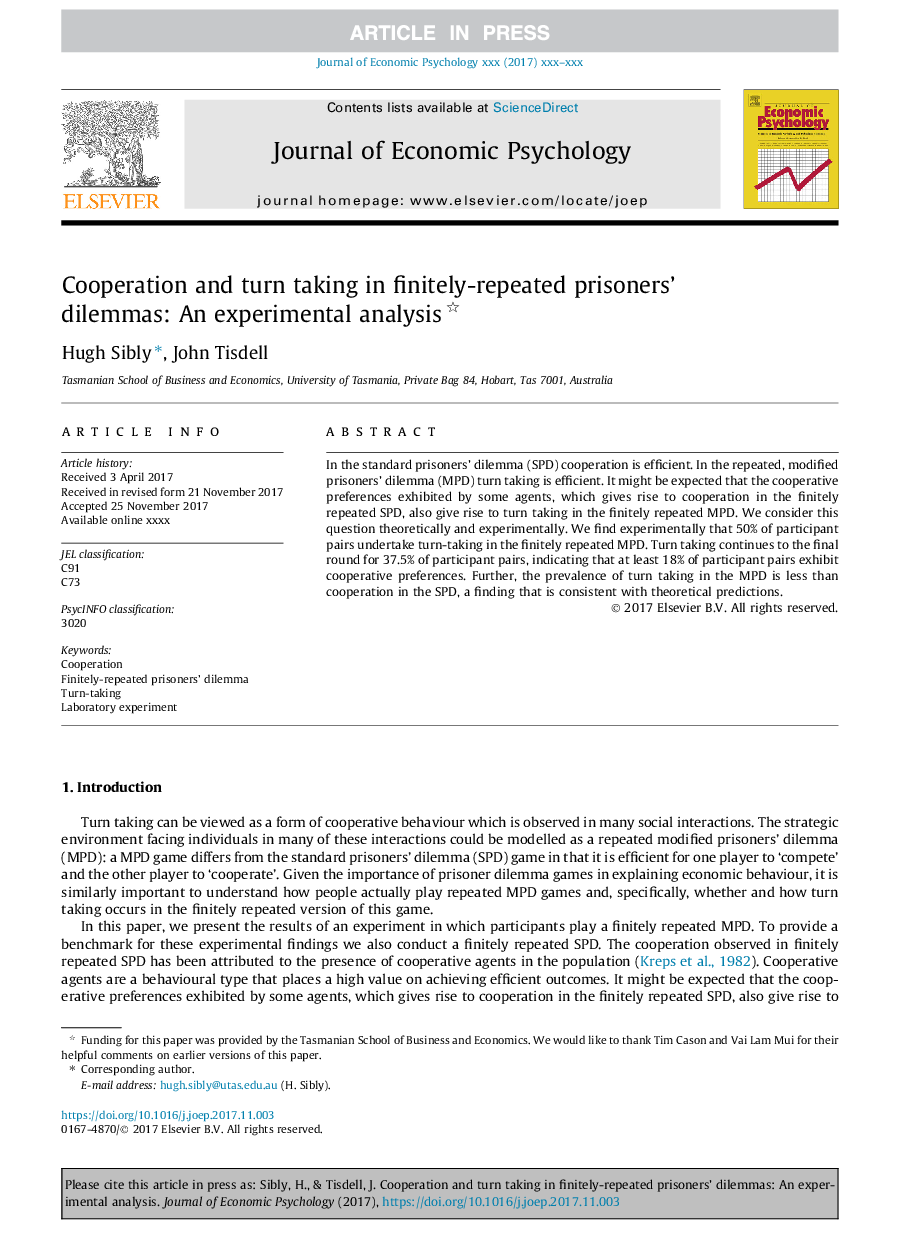| Article ID | Journal | Published Year | Pages | File Type |
|---|---|---|---|---|
| 7244076 | Journal of Economic Psychology | 2018 | 8 Pages |
Abstract
In the standard prisoners' dilemma (SPD) cooperation is efficient. In the repeated, modified prisoners' dilemma (MPD) turn taking is efficient. It might be expected that the cooperative preferences exhibited by some agents, which gives rise to cooperation in the finitely repeated SPD, also give rise to turn taking in the finitely repeated MPD. We consider this question theoretically and experimentally. We find experimentally that 50% of participant pairs undertake turn-taking in the finitely repeated MPD. Turn taking continues to the final round for 37.5% of participant pairs, indicating that at least 18% of participant pairs exhibit cooperative preferences. Further, the prevalence of turn taking in the MPD is less than cooperation in the SPD, a finding that is consistent with theoretical predictions.
Related Topics
Social Sciences and Humanities
Business, Management and Accounting
Marketing
Authors
Hugh Sibly, John Tisdell,
